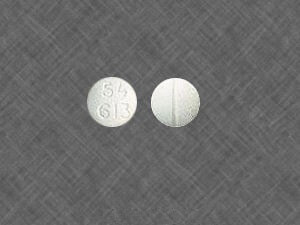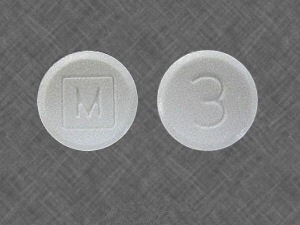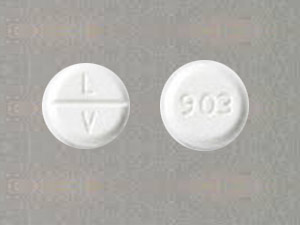Showing all 4 results
What is Codeine?
- Codeine is a prescription medication that helps treat moderate to severe pain symptoms. It belongs to the Antitussives category of drugs, including narcotics, opioid analgesics, and antitussives.
- It is still unknown whether Codeine is safe and effective in children younger than 12 years of age or not.
Important Information
- Respiratory depression and death cases came from children who took Codeine in the postoperative period following adenoidectomy or tonsillectomy.
- Children with obstructive sleep apnea treated with Codeine for adenoidectomy or post-tonsillectomy pain may be susceptible to the respiratory depressant effects of Codeine which has been rapidly metabolized to morphine.
- Some people face a quick break of Codeine in the liver that reaches higher than normal body levels. It can cause slow breathing (dangerously) and may cause death, especially in a child.
- Never share this medicine with someone else, especially someone with a past of drug abuse or addiction. Misusing a narcotic medicine like Codeine can cause addiction, overdose, or death, mainly if a child or another person uses it without a prescription. It is against the lawful act to sell it or give it away.
What to know before taking Codeine?
Avoid taking Codeine if you are allergic to it or have severe asthma causing frequent asthma attacks, breathing problems, stomach or intestinal blockage, or hyperventilation. To ensure Codeine is safe for you, tell each of your medical healthcare professionals about your medical history, especially of:
- Sleep apnea, breathing problems;
- Liver disease; Kidney disease;
- A head injury or brain tumor;
- Addison’s disease or another adrenal gland disorder;
- COPD (chronic obstructive pulmonary disease), asthma, or breathing disorders;
- Abnormal curvature of the spine (affects breathing);
- Low blood pressure;
- A gallbladder or pancreas disorder;
- Blockage in your digestive tract (intestines/stomach);
- Underactive thyroid;
- Drug or alcohol addiction, mental illness; or
- Urination problems, enlarged prostate
You may give birth to a drug-dependent baby if you use this medicine during pregnancy. Consult your doctor about how to change your doses during this time effectively. Avoid breastfeeding while taking Codeine.
How to take Codeine?
- Take Codeine with milk or food if it upsets your stomach. Drink six to eight glasses of water regularly to help prevent constipation while you are taking this medicine. Ask your doctor before using a laxative (stool softener).
- Do not suddenly stop taking Codeine after a longer-term use; otherwise, you could have unpleasant withdrawal symptoms. Take your doctor’s advice on how to stop using this medicine.
- Store Codeine away from heat and moisture at room temperature. Keep track of your drug. Be aware if anyone is misusing your medication or without taking a prescription because Codeine is a drug of abuse.
- Avoid keeping leftover opioid medication. If someone uses this medicine accidentally or improperly, only one dose can cause death. Mix the excess drug with coffee grounds or cat litter in a sealed bag and throw it in the trash.
Codeine dosage
Your Codeine dosage will depend upon your age, medical condition, response to the initial phase of treatment with Codeine, other medical conditions you have, and other medicines you take.
Usual adult dosage (ages 16 to 64 years):
Overdose
If an overdose occurs, take medical help or call the Poison helpline at 1-800-222-1222. A Codeine overdose can be deadly, especially in a child or someone taking it without a prescription. Overdose of Codeine can cause extreme drowsiness, pinpoint pupils, severe muscle weakness, cold and clammy skin, prolonged breathing, or coma.
What to avoid while using Codeine?
- Avoid consumption of alcohol or other alcoholic beverages as it may lead to dangerous side effects or death could occur.
- There might be impairment of your thinking or reactions due to the use of Codeine. Avoid operating machinery or driving a vehicle until you know how this medicine will affect you. Dizziness or drowsiness (severe) can cause falls or other accidental injuries.
Codeine side effects
Codeine may cause severe side effects, including:
- Sighing
- Noisy breathing
- Breathing that stops during sleep
- Shallow breathing
- Weak pulse
- Slow heart rate
- Confusion
- Lightheadedness
- Feeling extreme sadness or happiness
- Unusual thoughts or behavior
- Problems with urination
- Seizures (or convulsions)
- Vomiting
- Nausea
- Dizziness
- Loss of appetite
- Agitation
- Worsening weakness or tiredness
- Fever
- Hallucinations
- Fast heart rate
- Sweating
- Twitching
- Muscle stiffness
- Diarrhea, and
- Loss of balance or coordination
Take instant medical help if any of the above-listed side effects occur.
The most common side effects of Codeine may include:
- Drowsiness
- Feeling dizzy
- Nausea
- Constipation
- Stomach pain, and
- Vomiting
Tell the medical healthcare provider if you have any side effects that do not go away or bother you. It is not a complete list of side effects, and others may occur. For further information, contact any of your medical healthcare providers. You may report it to the FDA at 1-800-FDA-1088.
What drugs can interact with Codeine?
- Concurrent use of other opioid medications, antipsychotics, antihistamines, anti-anxiety agents, or other CNS depressants (including hypnotics, sedatives, antiemetics, general anesthetics, tranquilizers, phenothiazines, or alcohol) concomitantly with Codeine may result in additive CNS depression, hypotension, respiratory depression, profound sedation, or coma.
- Mixed agonist or antagonist analgesics such as nalbuphine, pentazocine, and butorphanol should not be given to patients who had or are currently receiving a course of therapy with a pure opioid agonist analgesic Codeine. Mixed agonist or antagonist analgesics may reduce the analgesic effect and precipitate withdrawal symptoms.
- Codeine interaction of Anticholinergic or other drugs with anticholinergic activity may increase the risk of urinary retention and severe constipation, which may cause paralytic ileus.
- Use of tricyclic antidepressants or MAO inhibitors with Codeine may increase the effect of either the antidepressant or Codeine. MAOIs potentiate the action of morphine sulfate, the primary metabolite of Codeine.




